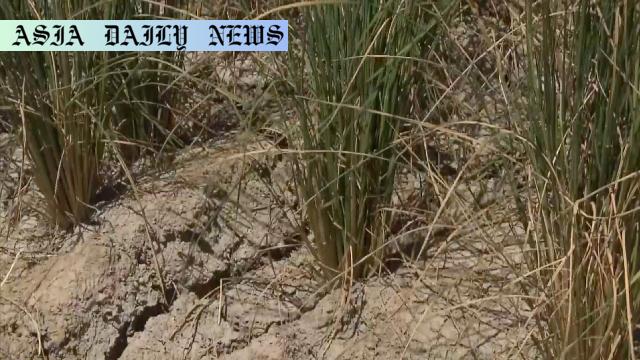Farmers: Japan’s agriculture ministry addresses agricultural challenges caused by extreme summer heat and insufficient rainfall.
Farmers face challenges from extreme heat in Japan, impacting rice growth.
The agriculture ministry is providing subsidies for water pumps.
Encouragement to switch to heat-resistant crop varieties is a key step.

Addressing Agricultural Challenges in Japan
The summer of 2023 has posed significant challenges to Japanese agriculture, with unprecedented high temperatures and limited rainfall creating concerns across the farming sector. The Ministry of Agriculture, led by Minister Koizumi Shinjiro, has recognized the urgency of these challenges and taken proactive steps to mitigate the impact of such extreme weather conditions on farmers. This initiative aims to address the specific difficulties plaguing farmers, particularly those in the Tohoku and Hokuriku regions. Rice farmers in these areas have already reported poor crop growth, raising alarms about broader implications for food security and the agricultural economy.
The ministry has established a dedicated taskforce to develop targeted solutions to these pressing problems. Key measures include encouraging farmers to conserve water by implementing efficient irrigation practices and providing subsidies to help them acquire water pumps. This financial assistance is crucial for ensuring that farming practices remain viable even under challenging climatic conditions. Beyond financial aid, the ministry is actively advocating for the adoption of heat-resistant crop varieties, which could prove indispensable in combating the long-term challenges posed by global warming.
The Role of Subsidies and Technological Support
One of the standout measures introduced by the agriculture ministry is the subsidy program for water pumps. This initiative underscores the ministry’s commitment to supporting farmers through practical and immediate interventions. By facilitating access to essential equipment, the ministry ensures that farmers can protect their crops from water shortages, especially at critical stages of growth. The use of advanced irrigation systems can also contribute to more sustainable farming practices, which are becoming increasingly important in the face of climate change.
Another critical aspect of the ministry’s strategy is raising awareness about the benefits of heat-resistant crop varieties. These specially developed strains are designed to withstand extreme temperatures, ensuring crop health and productivity even under adverse conditions. By encouraging farmers to shift to these resilient varieties, the ministry is offering a long-term solution to the challenges posed by rising temperatures. However, the success of this initiative will depend on effective communication and support for farmers during the transition.
The Impact of Extreme Weather on Agriculture
Extreme weather events, such as the high temperatures and drought conditions experienced in Japan this summer, have far-reaching implications for agriculture. Beyond the immediate effects on crop yields, such events can strain water resources, disrupt supply chains, and drive up food prices. The challenges faced by rice farmers in Tohoku and Hokuriku are a microcosm of the broader issues confronting agriculture worldwide. These challenges highlight the pressing need for investment in research and infrastructure to support sustainable agricultural practices.
Japan’s response to these challenges serves as a valuable case study for other nations grappling with similar issues. By prioritizing immediate interventions and long-term solutions, the taskforce is working to safeguard the livelihoods of farmers while ensuring food security for the country. The lessons learned from Japan’s approach could inform global efforts to adapt agricultural practices to a changing climate.
Looking Ahead: A Sustainable Future for Farmers
While the measures introduced by Japan’s agriculture ministry are commendable, they represent just the first steps toward building a more resilient agricultural sector. Long-term success will require a coordinated effort involving government agencies, researchers, and the farming community. Investments in technology and infrastructure, along with continued support for farmers, will be crucial for ensuring that agriculture can adapt to the challenges of a warming planet.
In the meantime, the efforts of the agriculture ministry provide a blueprint for how governments can respond to immediate crises while laying the groundwork for a sustainable future. By addressing the root causes of agricultural vulnerabilities and equipping farmers with the tools and knowledge they need to succeed, Japan is taking a proactive approach that could serve as a model for other nations.
Commentary
The Importance of Supporting Farmers in Challenging Times
The recent challenges faced by Japanese farmers are a sobering reminder of the vulnerability of agriculture to extreme weather events. High temperatures and drought conditions, as experienced this summer, can have devastating effects not only on crop yields but also on local economies and food supply chains. It is heartening to see Japan’s agriculture ministry taking swift action to address these issues, but it is also a moment to reflect on the broader implications of climate change for agriculture worldwide.
The Role of Innovation in Building Resilience
One of the most encouraging aspects of Japan’s response is its emphasis on innovation. By promoting the use of heat-resistant crop varieties and advocating for water conservation measures, the government is not just reacting to the current crisis but also preparing for future challenges. These efforts highlight the importance of research and development in creating sustainable solutions for agriculture. However, innovation alone is not enough. Farmers need access to financial resources, training, and technical support to adopt new practices effectively.
A Call for Global Collaboration on Agricultural Challenges
Japan’s efforts are commendable, but they also underscore the need for global collaboration in addressing agricultural challenges. Climate change is a global issue, and its impacts on agriculture require coordinated responses across nations. Sharing knowledge, resources, and technologies can help build a more resilient global agricultural system. As Japan continues to implement its initiatives, it is essential for other nations to take note and contribute to a collective effort to secure the future of agriculture in an increasingly unpredictable world.


